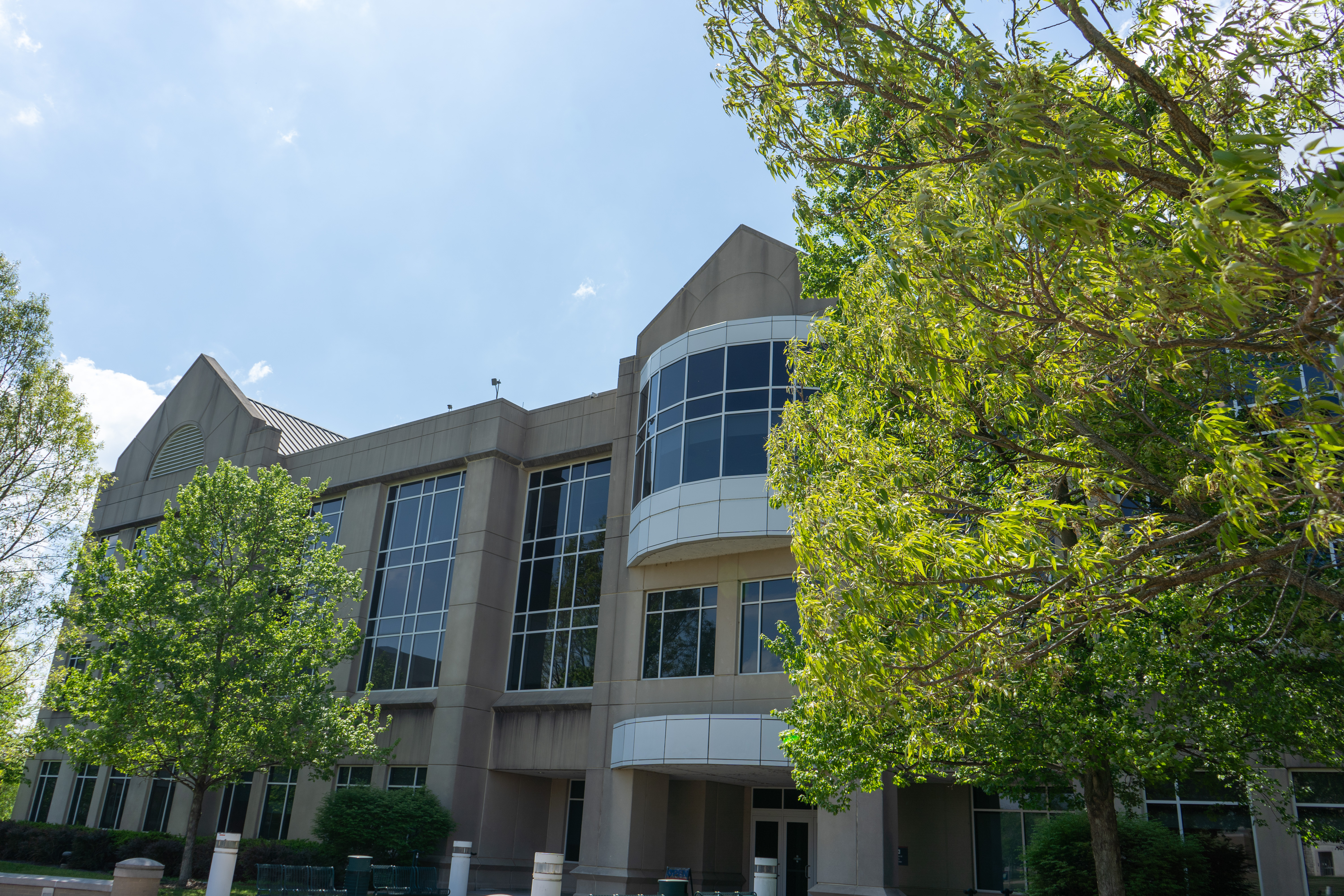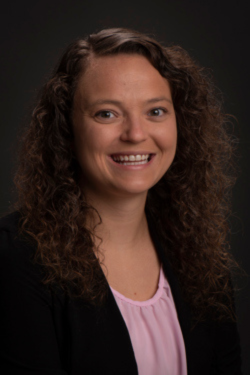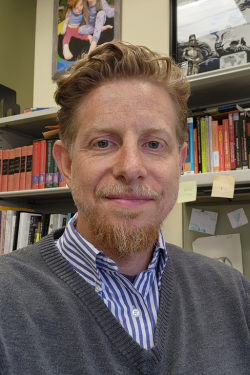Each fall and spring semester, USI faculty members from the College of Liberal Arts present individual, free public lectures featuring their current research. See past presentations below.
Spring 2025
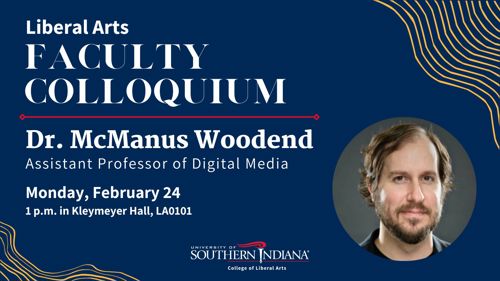
1 P.M. | Monday, February 24 | Kleymeyer Hall (LA0101)
American Film Critics have been reviewing, discussing, and rating motion pictures in the same way for almost a century. What is the rationale behind this apparent lack of innovation in how we as a society review, discuss, and rate Cinema?
Throughout the course of his exploration into the history and current state of American Film Criticism, and specifically when analyzing the industry from the perspective of Numeric Film Review Aggregation (Rotten Tomatoes and similar aggregators), one glaring subject has, for whatever reason, not been discussed: The need for a new system of Cinema Criticism and Film Review Aggregation.
Enter Cinelogical.
Please join Dr. McManus Woodend as he discusses current, popular methods of Film Criticism and Review Aggregation and his newly devised system of Cinema Criticism and Aggregation.
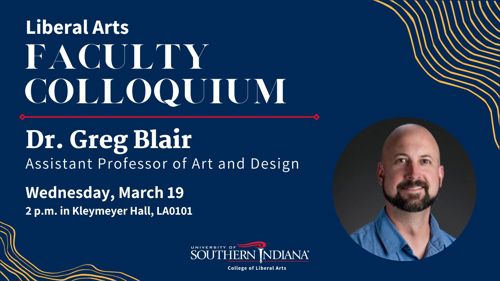
2 P.M. | Wednesday, March 19 | Kleymeyer Hall (LA0101)
This presentation examines the impact that punk culture has had on both my personal development and the growth of my professional career. Analyzed through the contextual lens of growing up in the late 80s/early 90s punk scene of a small western Canadian city, this presentation creates a correlation between my punk experience and my later ethos and philosophy of as a mid-career artist and writer. Punk culture taught me that sometimes transgressions are necessary to move things forward or in another direction.
This presentation draws a parallel between these lessons from punk and the theories of transgression of bell hooks, as well as José Ortega y Gasset’s critical role of philosophy to question beliefs and critique authority.
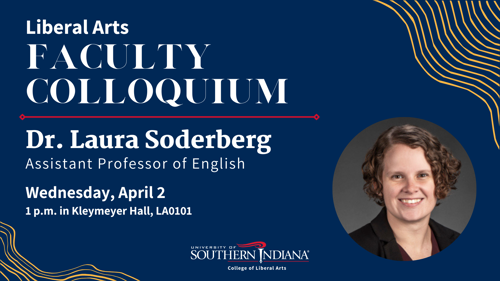
1 P.M. | Wednesday, April 2 | Kleymeyer Hall (LA0101)
One of the first projects of the early U.S. was to construct a patchwork of offices meant to spy on free Black residents. As a result, African Americans were some of the first people in the country to debate the meaning of privacy and to think about how they could outsmart surveillance.
This presentation analyzes how those conversations emerged in early Black literature, asking how government monitoring shaped the stories authors chose to tell.
Fall 2025
Spring 2024
Dr. Taylor Petty
3 P.M. | January 26 | Kleymeyer Hall
To combat sex trafficking, a victim centered approach, compared to current law enforcement strategies, can result in the prosecution of traffickers and offer needed services to survivors. However, law enforcement officers frequently arrest sex trafficking survivors for prostitution in accordance with state law. Even in cases involving minors, states often employ punitive consequences for trafficking victims (e.g., placement in detention facilities, diversion) despite federal legislation mandating states to treat them as victims. Thus, regardless of age, victims of sex trafficking often face disciplinary consequences. In this presentation, I will summarize several research studies exploring the impact of victim characteristics (e.g., age, sex, race, vulnerability, prior arrest history) on public judgments in sex trafficking cases. It is imperative that we understand all the potential factors that influence case outcome decisions for trafficked youth, in the hopes of increasing victim cooperation and the successful prosecution of traffickers.
Dr. Jane Weatherred
3 P.M. | February 23 | Kleymeyer Hall
Understanding stereotypes and beliefs about child sexual abuse is essential to the development of practice, policies, and prevention strategies. However, the lack of reliable and valid measurements to assess people’s perceptions and attitudes toward child sexual abuse has made understanding even more challenging. In this presentation, Dr. Weatherred will discuss her efforts to develop two psychometric measurements for researchers of child sexual abuse and how blame is attributed in those cases as well as the impact of belief in stereotypes. In addition to explaining the process for scale development, she will discuss how these instruments can improve future research regarding child sexual abuse which can support practitioners who implement educational training programs.
Dr. Andrew Buck
3 P.M. | March 15 | Kleymeyer Hall
My presentation will analyze letters sent by Soviet citizens to newspapers and authorities during the Brezhnev era, supposedly a period of political stagnation. Citizens wrote critical letters, individually and collectively, signed and anonymously, to have problems solved. Authorities responded to citizen concerns, which were mostly very specific and non-systemic, and also used the letters to monitor public opinion. The practice of letter writing in the Soviet Union in this period enabled citizens to hold authorities to account while also providing leaders with the opportunity to legitimize their authority by taking action.

Dr. Anya King
3 P.M. | April 5 | Kleymeyer Hall
In the Global Middle Ages, words were on the move along with goods and ideas. This presentation investigates the connections between the Classical Islamic World (9th-11th Centuries CE) and East Asia. Merchants and missionaries from the Middle East went by land and sea to East Asia, bringing back information along with porcelain and silks. Arabic script sources include phonetic transcriptions of Middle Chinese names and words that are a valuable witness to the historical pronunciation of Chinese. These words also enrich the portrait of relations between the Islamic World and East Asia in medieval times.
Fall 2024

Thursday, November 21
3 p.m. in Rice Library RL0017
Given that dietary intake is considered a major contributor to mental health, many individuals treat their mental illnesses via dietary restrictions. However, the evidence suggests that omitting foods might be unhealthy. A broad perspective on the relation between diet and psychological health from ‘diet-disease’ and ‘diet-health’ perspectives will be provided.

Patriots to Prisoners: Exploring the Lives of Incarcerated Military Veterans
Tuesday, October 15
1:30 p.m. in Rice Library RL0017
Abstract: Over 107,000 veterans were incarcerated in U.S. prisons in 2016, about 8% of the incarcerated population. Usually, public focus on veterans is positive; we thank them for their service and recognize their sacrifices. It can be disconcerting to reconcile the image of military personnel who served our country with offenders convicted of serious crimes. In this presentation, Dr. Stacer examines the life course pathways of incarcerated veterans to illuminate the various paths their lives have taken before, during, and after military service, and to provide more understanding of how celebrated heroes ended up behind bars. She will also discuss how military service helped facilitate adaptation to prison for these men and their involvement in American Legion posts in prisons.
Dr. Kristina Baker
1:30 P.M. | September 12 | Rice Library 0017
Juvenile Defendants Experiencing Autism Spectrum Disorder: How Defendant Race and Offense Type Affect Juror Decisions
Symptoms associated with autism spectrum disorder (ASD) are generally not predictive of criminal behavior. Nevertheless, when individuals experiencing ASD do become involved in the criminal legal system, attaching the ASD label to their descriptions may affect their treatment and punishment. Using a mock-juror paradigm (N = 511), this study aimed to explore whether providing information about the juvenile defendant’s ASD label, varying whether the defendant is charged with a violent or non-violent offense, and varying the defendant’s race influenced laypersons’ credibility evaluations and sentencing decisions. Participants were generally less likely to render guilty verdicts and harsh sentences when the defendant had an ASD label, even less so for the violent offense. Likability, honesty, and believability were rated higher when the defendant had an ASD label and these three considerations led to more lenient sentences, compared to the no label condition. Participants were also twice as likely to find the White defendant guilty compared to the Black defendant and reported being more certain in their verdict decision for the White defendant. These results highlight the complex interplay between defendant characteristics, the nature of criminal offenses, and public perceptions of ASD in criminal legal proceedings.

The Heart Longs for Freedom: Mathilde Franziska Anneke as Suffragette and Anti-Slavery Activist
Tuesday, December 3
1:30 p.m. in Rice Library RL0017
Abstract:
After the suppression of the March Revolution of 1848 in Germany, many liberal intellectuals who participated in or sympathized with the democratic uprising emigrated to the United States. As they integrated into German-American society, the Forty-Eighters founded newspapers, periodicals, and social and learned societies, and their revolutionary fervor in the pursuit of equality, liberty, and justice found a new outlet in the slavery abolition movement.
As a prominent figure among these German-Americans, Mathilde Anneke advocated both for the causes of women’s rights (including participation in the suffrage movement) and the abolition of slavery. In my presentation, I explore Anneke’s publications, their audience, and their impact on the German-American community. I shed light on the resistance to homogeneity in Anneke’s work and examine the prospect of a new American society Anneke envisions in her larger oeuvre.
Spring 2023

January 2023 - Video
This presentation analyzes nostalgia in “new Cold War” storylines in recent US film and TV. The Cold War and Soviet/Russian adversaries have been a staple in American film before and after 1990, often as a sign of nostalgia for the US ideological superiority during the second half of the 20th century. Such films often relate to US forms of nostalgia that date to the 1950s and emerged in reaction to the rise of the US nation to superpower status; they engage with narratives of American exceptionalism. Can nostalgic narratives be reengaged in multidirectional, multinational, and multigenerational ways to avoid ideological rigidity and push for forward-thinking dialogue?
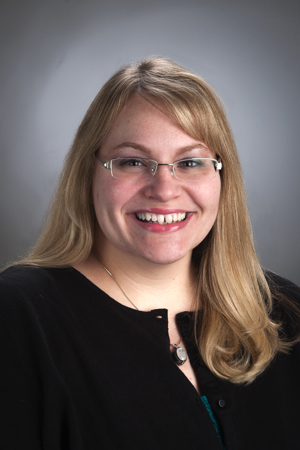
Dr. Erin Dennis
3 P.M. | February 24 | Kleymeyer Hall
This presentation will examine the reaction to Gillette’s 2019 Super Bowl ad, “We Believe.” Gillette was founded in 1901, and is now owned by Procter & Gamble. Recent changes in the shaving industry, including the resurging popularity of beards and an upswing in new brands, have led to declining sales and fiercer competition. Gillette’s two-minute commercial featured strong messaging about rejecting behaviors that can be classified as “toxic masculinity.” These behaviors were criticized in this advertisement, which upset some consumers. This presentation will discuss prosocial advertising, the online backlash against this particular ad, and how Gillette is now managing this prosocial messaging campaign. In addition, best practices for handling online negative consumer reactions will be discussed.
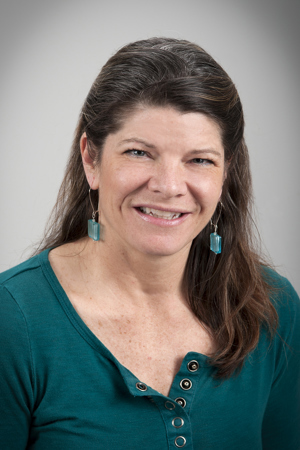
Al Holen
3 P.M. | March 24 | Kleymeyer Hall
Holen will discuss the enduring appeal of craft, the upsurge of "making" during the pandemic, and the physical and mental benefits of being a maker.
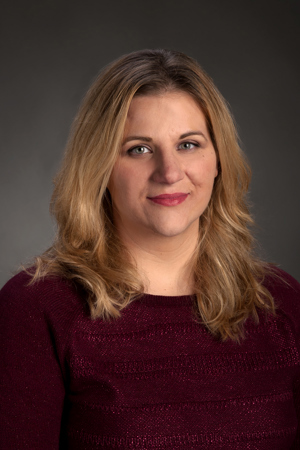
Dr. Stella Ress
3 P.M. | April 21 | Kleymeyer Hall
Culled from interviews with the cast and creators, contemporary reviews, fan discussions, and content analyses of the comic strip and musical performances, this presentation combines the questions asked and methodologies used by public history, popular culture, and the history of girls and girlhood. It argues that public historians should take pop culture productions of historic subjects seriously. By reading Annie not only as a pop culture product by and for girls, but also as a public history one, we can learn more about the roles little girls have in the power, the production, and the preservation of the past.
Fall 2023
Dr. David O'Neil
3 P.M. | December 8 | Kleymeyer Hall
Early medieval English poetry was composed in an alliterative style that today is known simply as Old English meter. This meter was fundamentally different from the poetic meters that most people today would recognize. These more recognizable meters include the iambic pentameter of Shakespeare’s plays and sonnets and the “common” meters found in English folk songs, ballads, and hymns such as “Amazing Grace.” In this presentation, David will share some basics of medieval poetic meter (along with a review of how modern poetic meter works) and provide opportunities for the audience to practice metrical scansion. He will also share his latest research on medieval English poetic traditions.
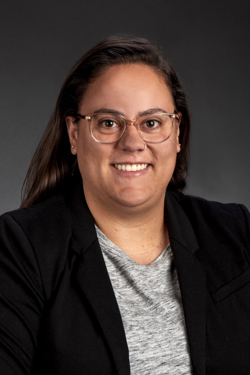
Dr. Kristin LaFollette
3 P.M. | September 8 | Kleymeyer Hall
Human specimens in medical museums are often dehumanized, meaning the individuals represented by the specimens are reduced to their illness or injury. As a result, visitors can view specimens as “curiosities” rather than human beings. In 2014, recognizing the dehumanization of the individuals represented by their specimen collection, the Indiana Medical History Museum (IMHM) began the “Rehumanizing the Specimens” project.
Using historical records and documents, the IMHM team developed narratives (which outline family connections and lived experiences inside and outside the hospital) for each of the 48 people represented in the specimen collection. Using the IMHM’s “Rehumanizing the Specimens” project as a case study, this presentation outlines the impact of language on dignifying dehumanized individuals. Specifically, I argue for the effectiveness of rehumanizing rhetoric (Winderman & Landau, 2020) and recuperative ethos (Molloy, 2015) and offer suggestions for how these strategies can be adopted by other medical museums and contemporary healthcare providers.

Dr. Cacee D. Hoyer-Mabis
3 P.M. | October 27 | Kleymeyer Hall
Post-World War II, the Indian South African community held clashing attitudes towards the creation of the State of Israel, which complicated their own anti-apartheid resistance movements, specifically the Indian South African led Passive Resistance Campaign of 1946-47. The small Muslim community in South Africa often supported the Palestinian cause, while Hindu support of the Jewish community was based around common identities of oppression. Evidence of such support was sprinkled throughout the Indian Press and caused significant tensions between the Indian political elites of South Africa.
This presentation traces the intricacies of these relationships, both significant minority populations in South Africa, and speaks to larger transnational issues of governance, as well as issues of identity politics in the post-WWII era. By highlighting the global implications of the formation of the State of Israel, this project reveals a divide amongst the South African Indian population that proved detrimental to early anti-apartheid activism.
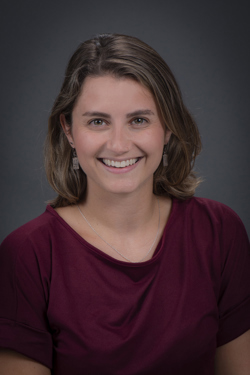
Dr. Kelly Kaelin
3 P.M. | November 10 | Kleymeyer Hall
This presentation investigates the role of enslaved Black women as leaders within small group Bible studies of new and prospective Christians on the island of St. Thomas in the eighteenth century. Drawing on archival research conducted in eastern Germany with the support of the College of Liberal Arts, it argues that as early as 1737, Black women had supplanted white woman missionaries as the primary messengers of German Moravian Christianity among enslaved populations. The establishment of Black women’s leadership in these early congregations reveals that Black women were crucial to the development of kinship networks and community support in the midst of an oppressive slave system.
Spring 2022
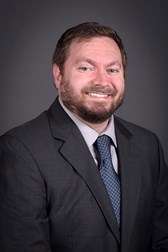
April 2022 - VideoThe 2020 publicized deaths of George Floyd and Breonna Taylor have increased social attention to incidents of police use of force in the United States. The spotlight of these events has created a divisive outlook on police tactics. Further, the current political climate has accentuated opposing viewpoints that highlight either the need for police reform or a steadfast stance on law and order. It is widely disputed whether heightened media reporting can influence individuals. This study uses historical tweets from the official Twitter handles of CNN and Fox News beginning March 25, 2020 and ending November 3, 2020. A content analysis of this sample was conducted to develop thematic messages from each news provider. Results indicate that both news sources use political ideologies to characterize the same reported events. CNN focused specifically on victimology while Fox News emphasized the lawlessness of citizen demonstrations. CNN coverage centers on public demonstrations and the need for criminal justice reform. Alternatively, FOX News coverage characterizes riots and the call for steadfast law enforcement efforts to maintain public safety.

March 2022 - Video
I first review and discuss empirical evidence regarding the brain damage associated with some psychopathologies and cognitive deficits, such as hemispatial neglect, agnosias, schizophrenia, amnesia, somatoparaphrenia, and others. It becomes clear just how closely normal mental functioning and consciousness depends upon normal brain functioning. I then explore the implications of these results with respect to the nature of mind and consciousness. In particular, I examine the plausibility of materialism, roughly the view that mental processes are brain processes, in light of the evidence discussed and in contrast to a dualist conception of the mind (whereby mental states are not physical in some sense). I also then examine the prospect of a conscious afterlife. For example, if conscious mental states depend upon proper neural function, does it then stand to reason that all of one’s conscious mental activity ceases when all neural functioning ceases? It appears that an affirmative answer to this question is more plausible than the negative answer, although it may be impossible to know with certainty.
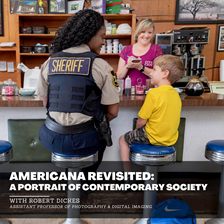
February 2022- Video
This work was inspired by the events of the Covid 19 pandemic, Black Lives Matter, the Presidential political race of 2020, and so many of the other events of 2019/2020. While in lockdown I was motivated by the work of Norman Rockwell and how he illustrated the idealism of American middleclass in the 1930’s -1970’s. Rockwell painted an image of the American middleclass that he saw. His utopian vision was featured on magazines as who we are and should strive to be. In my case, I want to look at what is the real modern-day America. Not with rose colored glasses, but with a sense of reality. My goal is not to politicize these issues, but to stand neutral and be observant to what I am seeing. Our country has turned so black and white that most people cannot see a contemporary issue without putting judgement upon it. Modern day Cancel Culture has pushed this to such extremes that just about everything is too controversial to have any kind of public discussion.

January 2022 - Video
According to the World Health Organization, mental illness is the leading cause of disability worldwide with over 500 million individuals suffering from depression or anxiety. Given that dietary intake is considered a major contributor to mental health, veganism and vegetarianism have become more prevalent as individuals seek to treat their mental disorders. Nevertheless, there is strong scientific evidence that restrictive dieting and omitting food groups impairs physical and mental health. Thus, the purpose of this talk is to present evidence showing that meat-avoidance is not an effective strategy to benefit physical or psychological health.
Fall 2022

November 2022 - Video
Graphic designers have long been known as problem solvers. Moreover, graphic designers are well versed in the processes and techniques employed in the related discipline known as Human-Centered Design (HCD). So, it didn’t take much for this graphic designer to believe that he could use HCD to tackle a complicated and entrenched problem like gun violence right here in Evansville. After all, the IDEO.org literature says that that’s what Human-Centered Designers do. Nearly 2 years since officially launching this initiative, progress has been slow, non-existent at times, but we may be nearing the completion of the first phase, or not.

October 2022 - Video
The speaker in the collection Failure to Appear comes up against the erosion or warped manifestation of the American promise in poems that consider capitalism, consumerism, car lot inflatable bald eagles, mass shootings, the tentacular Amazon fulfillment center, Scrooge McDuck and Lucky Charms. These poems interrogate the nature of hope, what can be revered, and the limits and possibilities of the human.

September 2022 - Video
Americans often equate anti-communism with Senator Joseph McCarthy who was a visible leader in anticommunist hearings from 1950 to 1954. Historians have recognized that anticommunism has operated as a tool of coercion and control since the end of the Civil War and it remains potent today. This presentation will look at the use of anticommunism to hinder the anti-Korean war movement and it argues that red baiting and framing calls for justice as communism has served (and continues to serve) powerful government and business interests to prevent social justice and justify war and imperialism. Anticommunism has been and remains a virulent strain in American political culture to the detriment of civil liberties and the free exercise of constitutional rights.
Fall 2021
November 2021 - Video
Nineteenth-century literature is full of supposedly bad children – juvenile delinquents, pathologized prodigies, runaway apprentices, and more – but it’s easy to miss them because their childhoods look so different than the conventional angelic child. Recognizing these children, though, gives us a better sense of how U.S. culture cast children as threats to the nation’s future, especially children of color, immigrant children, and disabled children. My work looks at how this range of dangerous childhoods hurt marginalized children, but it also considers how Black and Native authors imagined different, safer versions of what it meant to be a child.
October 2021 - Video
In the last decades, the study on Afro-Spanish varieties that developed during the Colonial period in the Americas have seduced many scholars. The analysis of these Afro-Hispanic speech patterns is crucial to determine their creolized or non-creolized status, as well as to understand why the scarcity of the Spanish based creoles in the Americas. The present study contributes to this linguistic field by analyzing the current speech of the Afro-Mexicans of the Costa Chica region, one of the largest Afro-Mexican enclaves, while proposing a Rhizomatic Linguist Model to interpret data derived from contact situations. The present investigation not only accounts for the Afro-Hispanic linguistic remnants of this Spanish variety, but also examines the current linguistic characteristics and sociolinguistic status of this speech area on the brink of extinction. In addition, this book advocates on behalf of those Costa Chica Afro-Mexican communities that have been stigmatized and customarily ignored in Mexico’s nation-state politics.
September 2021 - Video
Within the courtroom workgroup, prosecutors, along with judges, have a lot of discretion. From starting an investigation, to pressing charges, offering a plea deal, all the way through the sentencing phase, prosecutors participate in every phase of a criminal case. Unsurprisingly, with great autonomy and power come opportunities to abuse such power. This presentation will discuss the main prosecutorial ethics reforms of the past couple of decades and how they have influenced the commission of acts of misconduct by prosecutors.
Spring 2021
March 2021 - Video
Taverns were an essential institution in the frontier-era Midwest, providing food, drink, and sleeping quarters for travelers. Very little, however, has been written their operation, due mostly to a lack of primary documents. During the period 1815-1825, the Harmonists operated a tavern on the corner of Main and Tavern streets in New Harmony. Recent transcription and analysis of the Harmonist tavern daybooks has provided a glimpse into how this business operated and the types of alcohol that were popular among its patrons. While beer, hard cider, and wine were served at the tavern, sales of one drink in particular, whiskey, continued to climb through 1820. After this point, however, its sale was abruptly curtailed. Clues from Harmonist history provide a robust explanation for why the Harmonists chose to stop selling whiskey and other hard alcohol in their tavern.
February 2021 - Video
With the exception of modern free verse, most of the world’s poetry has been composed in meter. A poetic meter may require a particular number of syllables per line, particular sequences of light and heavy syllables, particular tonal sequences, or end-line patterns such as rhyme. Traditionally, these rules have determined what counts as poetry, and what doesn’t. In the early Middle Ages, all poetry, including well-known poems such as Beowulf, had to be written in a form known as the Old English alliterative meter. As the name suggests, the most obvious quality of the meter was mandatory alliteration in every line.
Here’s a three-line example from the first recorded poem in the history of the English language, Cædmon’s Hymn:
Nu sculon herigean heofonrices Weard,
Meotedes meahte ond his modgeþanc,
weorc Wuldorfæder, swa he wundra gihwæs…
[translation: “Now we must praise the Guardian of heaven,
the Measurer’s might, and the thought of his mind,
the Glory-father’s work, as he for every wonder…”]
In addition to the poem’s alliteration, there were also apparent patterns of stressed and unstressed syllables. However, the exact nature of these patterns remains controversial. In this talk, Dr. O'Neil will delve into the mystery of the Old English alliterative verse, exploring some of the competing theories from the last 150 years. He also proposes an explanation for the decline and ultimate demise of the alliterative tradition, which was superseded in the late Middle Ages by a class of poetic meters that has dominated English language verse ever since
January 2021 - Video
This presentation utilizes the Pocahontas coalfields in West Virginia and the Indian River Farms Company settlement of Vero Beach Florida as case studies of settler memory in two very different but connected Southern spaces that settlers considered frontiers as late as the nineteenth century. Both places constructed fantasies about Native peoples that promulgated enduring tropes that focus primarily on the idea of the Native woman Pocahontas.
Fall 2020
December 2020 - Video
The ability to comprehend, evaluate, and produce arguments ⏤ argumentation ⏤ is an important skill that students need both to succeed in college and to actively participate in a democratic society. This presentation gives a brief account of what this skill entails, why it is important to address, and, more importantly, how to help students improve this skill. Within this context, I will reflect on various factors (Student-related, Text-related, & Context-related) pertinent to improving students’ argumentation skills that I have explored in my research, with emphasis on a specific student-related factor (epistemic beliefs) that I have been examining for the past four years.
November 2020 - Video
Thirty-two nations have instituted bans on single use plastic bags, yet, at current rates, the world’s oceans may well have more plastic than fish in them by 2050. Additionally, plastic pollution rates have increased even more in the midst of the pandemic. Present levels of plastics dumping into global ecosystems are clearly unsustainable.
To make matters worse, the global plastics industry is growing at a rapid pace, and so too the pollution that it generates. Half of all plastics ever produced were created in the past 15 years, and production is expected to grow as the oil industry shifts from providing for automobiles to focusing more on plastic. All too often, single use plastic is used in rich nations and then dumped as refuse in poor ones.
Stoll will examine how companies can take more proactive and systematic steps towards minimizing their role in the creation of plastic pollution. By taking comprehensive measures to address plastic as an environmental harm negatively impacting a wide range of stakeholders who could not in principle consent to the harms accrued, companies can begin to remedy and reform morally unjustified practices. As with any attempt to become more morally accountable in business practice, special care must be taken to avoid greenwash as well as measures that may be morally better in one way, but substantially morally worse in another.
October 2 - Video
The presentation will center on Lutgen-Nieves’s work with the Vanderburgh County Sheriff's Office to assess the substance abuse and mental health treatment needs at the Vanderburgh County Jail (VCJ) in late fall 2019. Over the course of two months, Lutgen-Nieves and colleagues interviewed and administered surveys to more than 200 people held at VCJ. From their research they found a substantial and elevated need in the realms of both substance abuse and mental health. The presentation will cover the basis for this study, the study's methodology and findings, as well as policy implications, current ongoing projects with the jail and next steps.
September 4 - Video
Jennifer Donnelly’s 2015 novel These Shallow Graves and Katherine Howe’s 2015 novel The Appearance of Annie Van Sinderen are both set in nineteenth-century New York (with Howe’s book spanning the 1830s and the 2010s) and both end with Author’s Notes or Acknowledgments that give credit to the Museums and Institutions of New York City for keeping the past alive.
Both authors, it seems, did excellent research into their subject matter, bringing the nineteenth century alive on the page. By refreshing this classic space, authors like Donnelly and Howe call attention to the significance of American history, and encourage their teen audiences to reclaim those spaces for cultural preservation.
